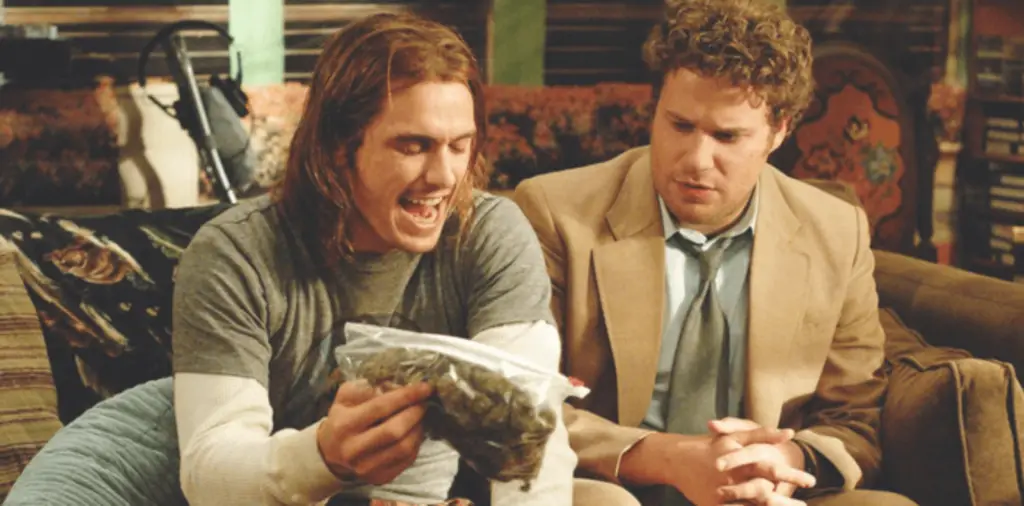
Now that the infamous trial is long over (and look how quickly it was forgotten), now that Neverland Ranch will soon be sold, and now that the ghost of music’s past will permanently reside in Bahrain in the Middle East, it’s time to move toward a more important debate within “Charlie and the Chocolate Factory. Is he actually Michael Jackson’s….no, I’m kidding. Most important above all that lemming-like hoopla during the film’s theatrical release is whether Tim Burton’s vision will rise to the classic status that “Willy Wonka & the Chocolate Factory” currently enjoys. To begin, a look at all things Wonka in 1971 and 2005.
1971: Gene Wilder dresses in purple and makes numerous literary references as Willy Wonka
2005: Johnny Depp includes a bug-eyed pair of sunglasses and references “Hair”, while Burton slips in allusions “Psycho” and “2001: A Space Odyssey”.
1971: Musical numbers are given to Wonka (and Gene Wilder’s got quite a good voice), Charlie’s mother, Veruca Salt, the candyman at the candy store (Aubrey Woods), and the Oompa Loompas who are there when each brat succumbs to their weaknesses.
2005: The only songs here are done by Deep Roy as the Oompa Loompas with lyrics straight from Roald Dahl’s book and vocals by Danny Elfman.
1971: Wonka’s factory is simple enough to navigate, giving him room to be eccentric in other ways. His chocolate room is the pinnacle of the movie, with images that would last until the 2005 release and even then still last.
2005: Burton goes wild with possibilities, and puts production designer Alex McDowell to work, making rooms and areas of the factory that reflect Wonka’s mindset.
1971: Charlie’s family is only him, his mother, and his grandparents (including Jack Albertson as Grandpa Joe). He doesn’t have a father here. We could assume that the Buckets were respectfully well off, but perhaps the death of Mr. Bucket brought on surprising hardships.
2005: Mr. Bucket is back in here, as a toothpaste cap screwer, as it was in the book. Courtesy of Mr. Burton, Mrs. Burton (Helena Bonham Carter) plays Charlie’s mother.
1971: There wasn’t much blame put on the parents’ behavior that allowed their children to run amuck, and is only referenced when Veruca falls down the garbage chute after an impromptu number demanding all that she wants. Mind you, Roy Kinnear as Veruca’s father, looked flummoxed at it all, sheepishly giving his daughter whatever she wanted, never thinking to exert any power.
2005: So what of fathers who are extremely proud of their little girls to the extent that they’ll do anything for them? Certainly, the kingly James Fox cannot look as harried as Kinnear and calmly steps to the podium at his nut-sorting factory and tells the women that they will be sorting chocolate bars instead in order to find the elusive Golden Ticket.
These are only surface observations, however. Burton does engage in some of his well-used themes, such as that of suburbia, quickly in Atlanta, Georgia where Violet Beauregarde (Annasophia Robb) resides, but also where Charlie doesn’t live, the rows of housing up the street from his family’s slanted shack, perhaps poking fun at America’s insistence that it all should look so perfect. Perfection also comprises Phillip Rousselot’s cinematography with the kids. Augustus Gloop’s (Philip Wiegratz) face looks too glass-like, too shiny, too unblemished, Burton’s first comment on parents parenting their children. Here, he comments on some parents idolizing their kids, basically giving them free rein toward whatever they like to do or whatever they like to be in life, gluttonous, greedy, competitive, or obsessively concentrated like Mike Teavee and his explanation of breaking the system which in turn allowed him to locate a Golden Ticket. Some of this is likely from John August also, but in watching these scenes, you know Burton definitely had something to say too. It’s also why Willy Wonka’s childhood is in the later parts. There’s one extreme, giving kids too much and then the other, giving them too little as Dr. Wilbur Wonka (Christopher Lee) does in not allowing young Willy, with grotesque orthodontic headgear, the opportunity to partake of his Halloween candy, instead throwing it all into the fireplace. Burton calls for a compromise of sorts, the middle ground between both sides in that parents should be watchful of what their kids do, but also allow them to grow without harshly interfering. Burton’s usual theme of fathers is alive again, but this is relatively new ground for him, and the only time where it can ever be approached like this.
Burton’s film will be a classic in a number of years because of the unadultered joy and fun contained all around, from the opening sequence with much emphasis on CGI, to Danny Elfman’s compulsively singable songs (I have the line, “chewing, chewing, all day long!” from Violet’s song tromping around in my head right now), to all that’s inside the chocolate factory, and of course, Depp’s Willy Wonka. Depp’s talent, as it is with many actors, is that it’s extremely difficult to spot one character in another. Yeah, yeah, there are influences that have viewers trying to find quirks they know of in other celebrities such as Pasty White, but it’s as if Depp enjoys the show as much as we do and that’s most important. I loved this entire trip, this journey, this dive into wackiness for wonder’s sake. This past summer in IMAX, it was the first time in ages at a movie theater where I actually felt my brain working. On DVD, it’s the same feeling, elation felt all over while watching it.
It’s on DVD where “Charlie” will gain the most benefit, especially on two discs, which is what parents should consider for the good of their kids giddy over this, and what everyone else should purchase. The attitude and atmosphere is entirely preserved here, through menus, including new footage of Deep Roy as the Oompa Loompas, rolling television set spheres in the middle of the screen when the “Activities” option is chosen on the second disc. It is the second disc, in fact, where everything is stored. No audio commentary by Burton on the first disc and none needed because of what’s here. Featurettes on the training of the squirrels for the Nut Room sequence, Deep Roy becoming all the Oompa Loompas, and the expected looks at the characters, set design and special effects all combine into a delicious confection, wrapped with poignancy in a short documentary on Roald Dahl, featuring interviews with close family members who also read selections from a few of his books, to remind us also that even before Burton, before Gene Wilder and director Mel Stuart, before all the other movie versions of his works, Dahl first had it all in his head. Remarkable words and a remarkable man.
The activities range from learning the choreography of the Oompa Loompa’s dances (the “Augustus Gloop” and “Violet Beauregarde” songs) to an easily forgotten nut sorting game and an inventing machine which allows two flavors to be put together before an Oompa Loompa taste-tests it. The best one is the Exploding Chocolate combination. The biggest activity on here is the “Search for the Golden Ticket” which involves finding the Golden Ticket for each of the kids through various games, such as Augustus having to eat 45 chocolate bars across three rounds, and Charlie having to find the money, finding it again, and then finding the Golden Ticket in a chocolate bar in the shop.
It’s also evident how the DVD’s charms are the same as the movie it contains. During the summer, it felt like Wonka was being introduced far too fast, that due to the main title sequence, it wasn’t possible to luxuriate in what would be set before us. Prince Pondicherry, Wonka’s beginnings, and Mr. Bucket’s job were just there to give some background and be rushed through. That was it. Now, watching it again, there is the right tempo in all of that (though how is it after all the time Charlie was building his toothpaste cap model of Wonka’s factory that Grandpa Joe reveals only at that time, for the audience’s convenience, that he worked for Wonka?), though when it comes time for the Great Glass Elevator to go “up and out”, there is a slowly wrenching feeling within. As Wonka, Grandpa Joe and Charlie look down upon the unfortunate others leaving the factory, it should be ended there! Just fade to the credits! However, the completion of Wonka’s backstory merely gives us more time to remain in this world and that’s good enough. More time with the cinematography, set design, and Christopher Lee is always worth it. It becomes just as much a part of the movie as everything else. Pure imagination is what will propel “Charlie and the Chocolate Factory” as a classic. Everything’s irresistible, magical, and oh-so scrumdiddlyumptious.

